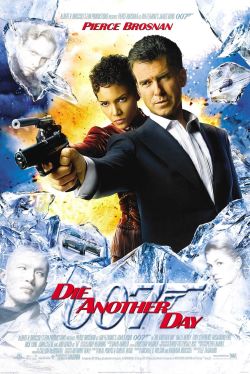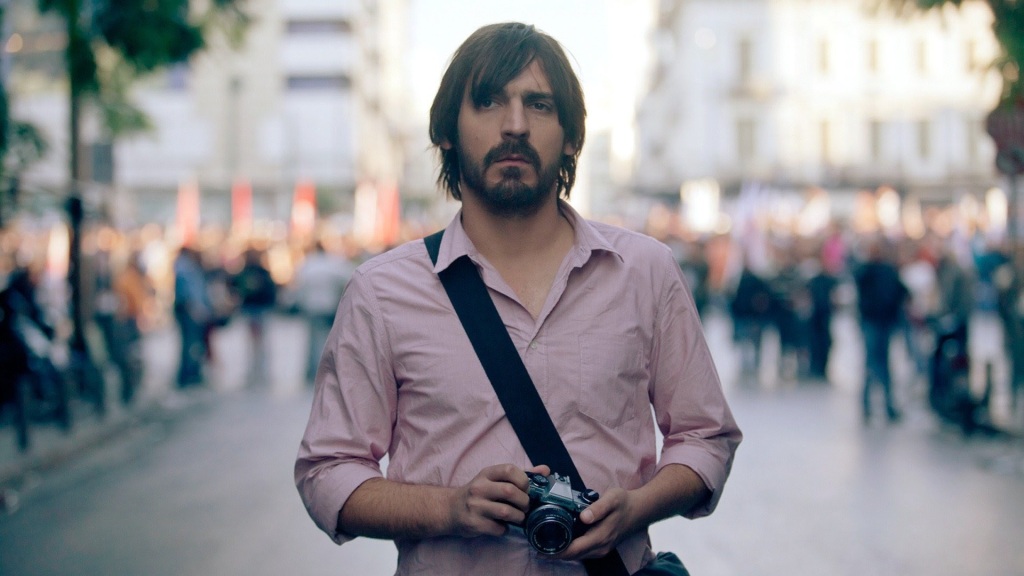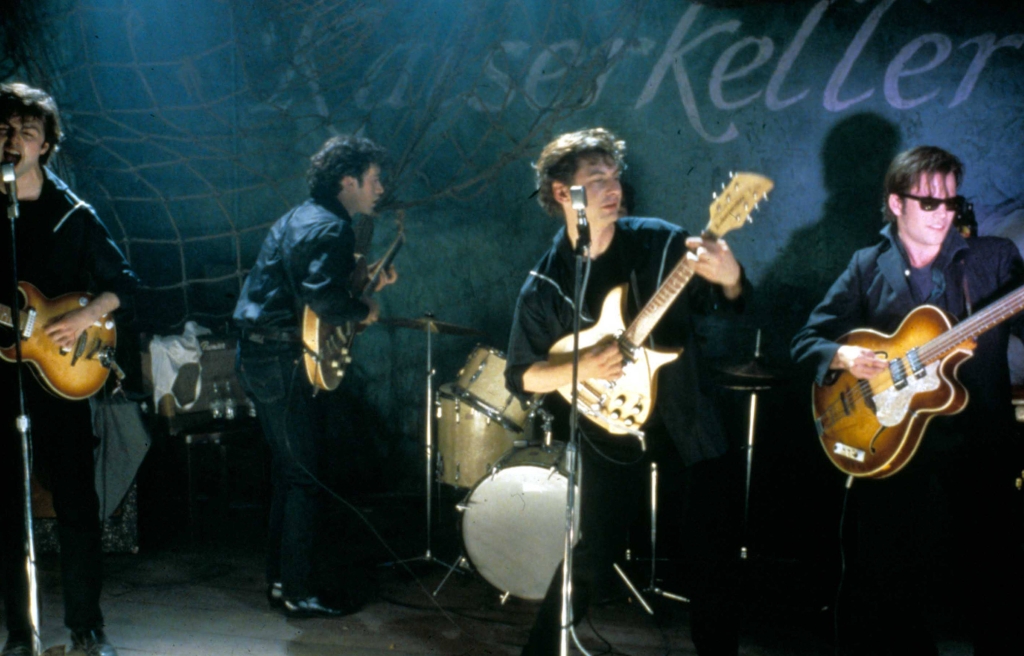 Be careful what you wish for, I guess.
Be careful what you wish for, I guess.
1999’s The World is not Enough was a James Bond film that seemed oddly unenthused and lazy, relying on old franchise traditions without any real sense of spark or effort. The next Bond feature, 2002’s Die Another Day, almost seems its opposite. If anything there is too much effort taken to shake things up – I applaud its ambitions while finding the results absolutely farcical. For those who struggle with remembering which Bond film is which, this is the one with the invisible car.
In Die Another Day, Bond (Pierce Brosnan) is captured and tortured by the North Korean military after a mission goes awry. Released in a prisoner exchange he goes rogue to track down the Korean terrorist Zao (Rick Yune), encountering his American equivalent Jinx (Halle Berry) along the way.
The Bond films have regularly pushed the limits on realism in regards to the various gadgets Bond receives from his quartermaster “Q” branch, as well as some of the more outlandish master plans unleashed by his enemies. Occasionally those limits are broken completely, most famously in 1979’s Moonraker but also very much here in Die Another Day. Here everyone appears to own a deadly laser. Gene therapy treatments can change a person’s entire height, appearance, and ethnicity. The villain has a giant satellite that can reflect and amplify the sun’s rays, effectively creating a “death beam” that incinerates everything in its path. And, yes, James Bond has an invisible car. Die Another Day‘s first and most significant problem is that there is no suspension of disbelief. It is simply so outlandish and unbelievable that it becomes difficult to care about the story.
There is also an odd obsession with giving Bond more inventive and unusual things to do. He enters North Korea on a surfboard. To escape the villainous Gustav Graves’ (Toby Stephens) destructive Icarus ray he improvises some parasailing. In the middle of the film there is an utterly odd fencing duel between them. They all feel vaguely ridiculous, like a balding middle-aged man driving an incongruous sports car. It all jars very badly with the film’s opening act, in which Bond is brutally tortured for 14 months in a Pyongyang prison.
The film pushes heavily into giving Bond an equal as a love interest. Jinx (Berry) is not just another international secret agent; she is overtly and aggressively sexualised, comes packed with her own range of pithy quips and bon mots, and enters the film pursuing her own agenda. The problem with the character comes with balance. This is, at the end of the day, a James Bond film. Bond needs to dominate, and this soon drives Jinx into the same victim-come-sidekick role occupied by all “Bond girls”. It is the same problem faced by Wai Lin (Michelle Yeoh) in Tomorrow Never Dies: sooner or later the apparent “equal” female protagonist is going to be tossed the proverbial idiot ball to make the genre conventions work.
The sexual innuendos, a key part of Bond in its earlier decades, continue on from their revival in The World is not Enough – but here they seem massively expanded. It seems everyone is in on the act: not just Bond but Jinx, M, fellow MI6 agent Miranda Frost (Rosamund Pike), Graves – even Madonna has a red-hot go in an odd one-scene cameo.
I actually feel a little sorry for Pike. Future performances in Gone Girl, A Private War, and other films will show her off as one of the UK’s strongest acting talents. Here she plays demure second fiddle to Halle Berry, until (spoiler warning here, I suppose) an under-motivated second-act twist reveals her as another villain. For the rest of the film she is stuck playing things overt and hammy. One wonders if, at the point she is required to challenge Berry to a sword duel on a Russian cargo plane while wearing nothing but tight pants and a sports bra, if Pike reconsidered playing the role – even her life choices.
If there is a highlight of the film, it is Bond and Zao engaging in a one-on-one duel while driving gadget-filled spy cars on a frozen lake. That, however, is one scene, and does not explain where Zao got a spy car and fails to compensate for the weird silly science fiction elements, or the unbalanced characters, or the risible dialogue, or Toby Stephens’ oddly awful performance. In his mild defence, he knows what he’s in and performs appropriately – this is a villain performance in the mode of Jeremy Irons’ spectacular self-sabotage in Dungeons & Dragons.
Running a decades-long action movie series is always going to be difficult. Keeping things at a constant standard of quality must be close to impossible. It is no surprise that there are bad Bond films as much as there are good ones, and there are some absolutely great ones. Casino Royale, From Russia with Love, The Spy Who Loved Me. You probably have your own top picks. I would be flabbergasted if Die Another Day makes your list. This is Bond at its silliest, and its most catastrophically awful.





Leave a comment